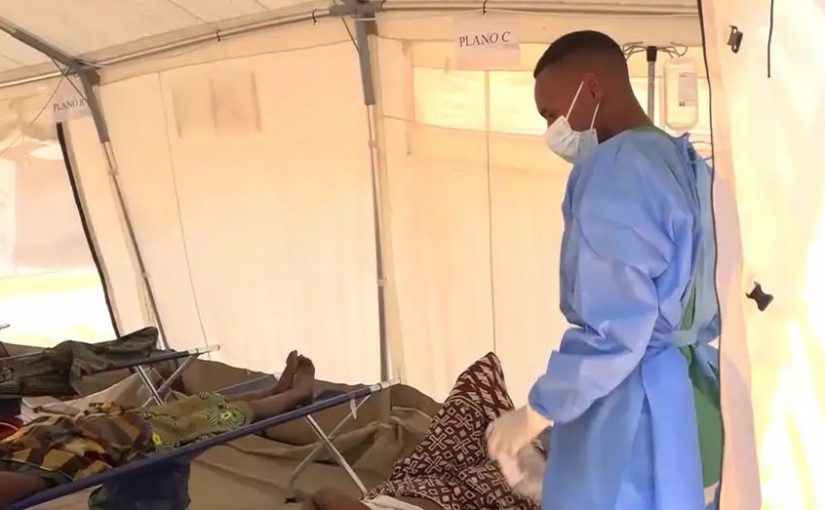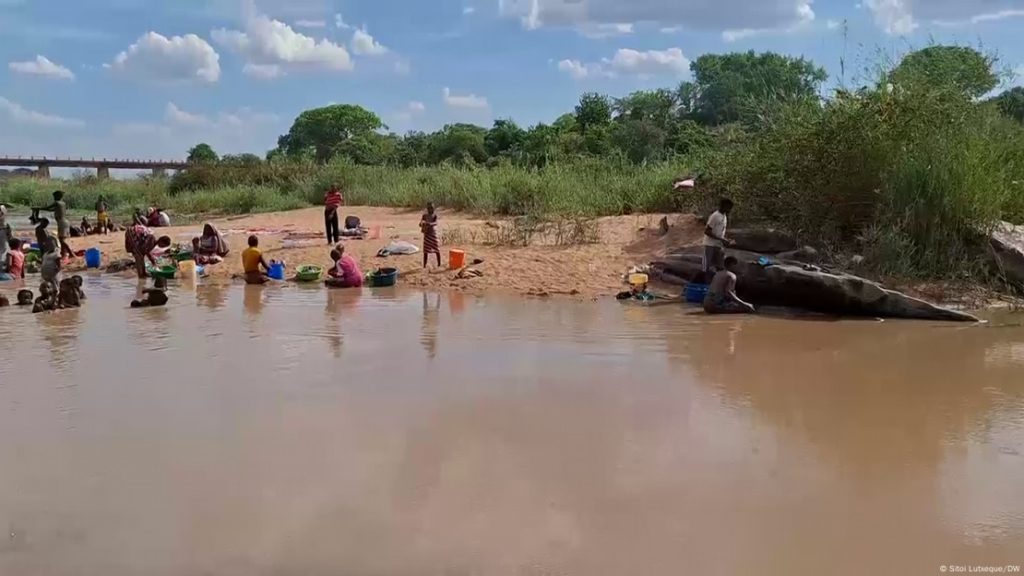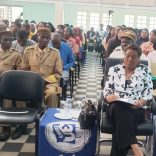Mozambique: Gender-based violence taking lives in Nampula province - Ikweli report
Mozambique: Cholera deaths worry authorities in Mogovolas, Nampula province

Five to seven new cases of cholera are recorded every day in Mogovolas, according to health authorities [Photo: Sitoi Lutxeque/DW]
- The number of deaths from cholera has risen to 11 in a district in the northern Mozambican province of Nampula. Health authorities have recorded around 257 cases since the outbreak of the disease in November.
The drinking water crisis in the district of Mogovolas, 70 kilometres from the provincial capital, Nampula, is distressing the more than 40,000 local residents. Residents consume water from unsafe sources such as the nearby Meluli river and others.
The consumption of unsafe water as a result of drought in the region is the main cause of the cholera outbreak, which has already caused eleven deaths. According to health authorities, around 257 cases have been recorded since the outbreak of the disease in November.
Residents say they have no alternative to using “dirty water to drink”.
“We leave our homes, go to the river and dig small holes to extract the water that nature gives us, so that we can drink it with our families,” explains António Joaquim, a resident of Nametil, the Mogovolas district headquarters town.
District administration reacts
The administrator of Mogovolas district, Emanuel Impissa, acknowledges flaws in the district’s water management and supply system, while pledging that the executive is trying to minimize the problem in order to reduce cases of cholera.

“With our partner, Arco Íris, we identified some critical neighbourhoods, where we drilled boreholes,” the administrator said. “Within days” there would be “water points” supplying the population.
To improve water management and supply, the general director of the Águas do Norte Regional Administration (ARA-Norte), Carlitos Omar, promises specific assistance for Mogovolas.
“We are working, we know that there is a cholera situation in Mogovolas,” he says. “There is a lack of water, but we now have a tank that can help treat the water and distribute it to the population,” he says.
Wave of misinformation
The wave of misinformation about cholera is another problem. Residents have been attacking activists who disseminate information about preventative practices and distribute water purifiers, accusing them of spreading the disease.
“The wave of misinformation is on the rise in the district [Mogovolas],” the head of the Department of Public Health, Geraldino Avalinho, admits.
The official says that this is a controllable outbreak, but that it is spinning out of control due to misinformation, and not because of the post-election protests taking place in Mozambique.
According to Geraldino Avalinho, residents have vandalized the Cholera Treatment Centre three times, forcing patients to flee.
Health authorities in Nampula province already have 10,000 bottles of water purifier, but there are concerns about distributing it because of instability related to misinformation about cholera.












Leave a Reply
Be the First to Comment!
You must be logged in to post a comment.
You must be logged in to post a comment.